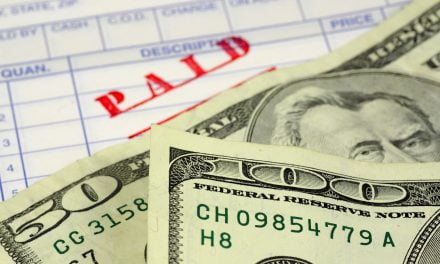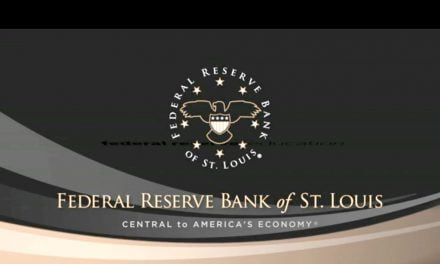Pre-bidding: strategize with the buyer, understand the auction environment
Auctions thrive on excitement and surprise. Without the proper pre-bidding research, auctioneers are essentially selling any unopened box containing a surprise to be discovered later by the highest bidder after the transaction closes. Auctions also rely on the human emotion of competitiveness and reaction to excitement as a method of persuading buyers to make offers they would not otherwise make were they to sit down at a bargaining table with the seller and negotiate a deal.
Thus, the agent and buyer must carefully review their research, set the ceiling for bidding and strategize prior to the sale. Having completed an inspection of the physical property, due diligence investigation and an analysis of comparable property prices using a CMA form to set the property’s resale value, the buyer and agent are armed with enough information about the property to know its general value. With this information and conclusions about the property as a foundation, the buyer can then set the maximum dollar amount he is willing to bid.
If the bidding exceeds this ceiling, the buyer will not participate, letting the higher bidder(s) pay more for the property than it is reasonably worth, a common occurrence.
Prior to the auction, the auction company conducting the sale needs to be identified and the agent needs to familiarize himself with the company’s procedures so a high level of comfort exists during the auction. The agent needs to get a copy of the purchase agreement the listing broker is using and familiarize himself with its provisions. If the agent is not familiar with the paperwork and procedures of the auction company, he will not be able to function properly as an advisor for the buyer.
If the company conducting the auction requires the buyer’s agent to register his agency relationship with the buyer prior to auction, the agent must do so on the timeline established by the auction company, usually at least 24 to 48 hours prior to the auction.
Most auction companies require a 5% or $2,500 deposit, whichever is greater, to be advanced by the highest bidder when the bid is accepted. Many national auction companies who conduct auctions in California claim that, as a matter of policy, the deposit will not be refunded if the buyer is unable to obtain financing and close the transaction within 30 days of the auction.
Everyone, by the time they reach the age of capacity to contract, understands the fundamental premise that when you wrongfully cause another person to lose money, you are responsible for repayment of the loss. This economic concept was codified for real estate transactions in 1872 and remains intact today. [CC §3307]
However, an equally fundamental premise holds that windfalls are abhorred by all since they are unearned.
The buyer’s deposit, even if released to the seller after contingencies have been removed, is the buyer’s money which must be returned, unless:
- the buyer receives consideration (title to the property); or
- the deposit is offset by reimbursement to the seller for his actual money losses suffered due to a breach by the buyer.
Thus, the buyer’s deposit on becoming the high bidder must be made payable to either the escrow handling the transaction or the listing broker. If the buyer is unable to close the transaction within 30 days, the seller or the seller’s agent’s refusal to refund the buyer’s deposit based on a forfeiture provision may be challenged by the buyer as voidable since the buyer is entitled to a return of his entire deposit (less any actual money losses incurred by the seller). Thus, the forfeiture provision is unenforceable since the provision’s validity is a rebuttable presumption when the seller’s actual out-of-pocket losses are less than the deposit claimed by the seller.
The agent must ensure the buyer brings all documents required by the policies of the auction company to be considered a bona fide bidder, such as:
- personal identification; and
- evidence of financial ability to pay.
Most auction companies allow the successful bidder to tender payment of the bid in the form of:
- cash;
- a cashier’s check drawn on a state or national bank;
- a check issued by a state or federal thrift, savings and loan association (S & L), savings bank or credit union; or
- a money order.
Again, these funds must not be made payable to the auctioneer unless he is licensed to handle funds in the state of California as a real estate broker or escrow company.
The agent must also determine how the auction fees will be paid – by the seller or the buyer. Typically, the buyer pays a buyer’s premium of 5%-10% of the purchase price, or an auction service fee of between $2,000 and $5,000. The buyer’s premium should always be made payable to the listing broker or the escrow company, never to the auction company or the seller. The seller, escrow and the listing broker all have to answer for the deposit, but the auctioneer is not licensed as a broker or escrow, and is not the seller who has to deliver an insurable title. Thus, the auctioneer’s receipt of the deposit is improper and will only create problems for the buyer.


















One ought to able to sell a property as “land value only” in the contract, and achieve an “as-is” sale. However, some asinine “make-it-up-as-you-go” judge (or judgette) will probably think that violates “public policy” too. Typical.
Connor,
Your Editor’s note – This “as-is” clause is not unique to just purchase agreements used in real estate auctions. In defiance of state laws, the April 2010 revision of the purchase agreement published by the trade union included problematic and unenforceable “as-is” language.
CAR put the ” AS IS” is quotation in the new RPA. It is not in defiance of state laws. Agents and the public were and are using that term. The consumers wanted to see that understanding even in the form of quotation. It was often termed in the counter. Now it won’t have to be.
Property is always sold in its present physical condition and the owners and the agents must always disclose what they know of the present physical condition, and let the negotiation begin.
Per CAR; Paragraph 9, Page 4, Condition of Property – A parenthetical, “as-is” was added to describe what is meant by “present physical condition.”
I hope this clarifies.
Mike Cocos